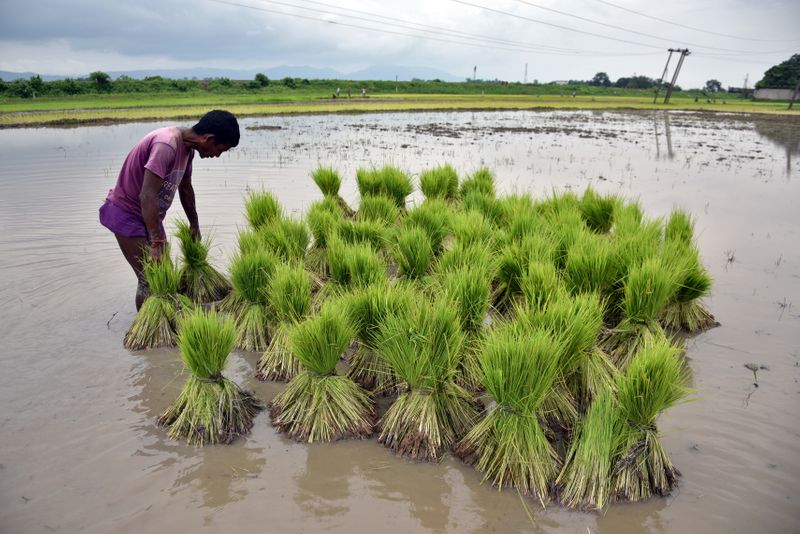By Mayank Bhardwaj
NEW DELHI (Reuters) - Indian farmers have planted 79.9 million hectares with summer crops so far, according to the Ministry of Agriculture & Farmers' Welfare, up 18.3% from last year as robust monsoon rains spurred sowing in the world's leading producer of farm goods.
Farmers generally start planting rice, corn, cotton, soybeans, sugarcane and peanuts, among other crops, from June 1, when monsoon rains typically arrive in India. Sowing usually lasts until July or early August.
Monsoon rains play a crucial role in agriculture, which employs 50% of India's 1.3 billion people, as nearly half of the country's farmland lacks irrigation.
The farm ministry provides updates on the provisional sowing figures as it gathers information from state governments. The planting figures are also subject to revision depending on the progress of the June-September monsoon season.
As of Friday, planting of rice, the key summer crop, was at 22 million hectares, against 18.7 million hectares at the same time last year. Corn planting was at 7.1 million hectares, up from 6.6 million during the same period last year.
The area planted with cotton totalled 11.8 million hectares against 9.6 million hectares a year earlier.
Sowing of soybeans, the main summer oilseed crop, stood at 11.4 million hectares, compared with 9.7 million hectares at the same time in 2019. Soybean output is set to jump by at least 15%.
Planting of the protein-rice pulse was at 9.9 million hectares, higher than 7.9 million hectares last year. Sugar cane sowing was unchanged at 5.1 million hectares.
India has received 6% above average rainfall since June 1.
The weather office defines average, or normal, rainfall as between 96% and 104% of a 50-year average of 88 cm for the entire four-month season.

Water levels in main reservoirs were at 39% of their storage capacity, against 25% at the same time last year.